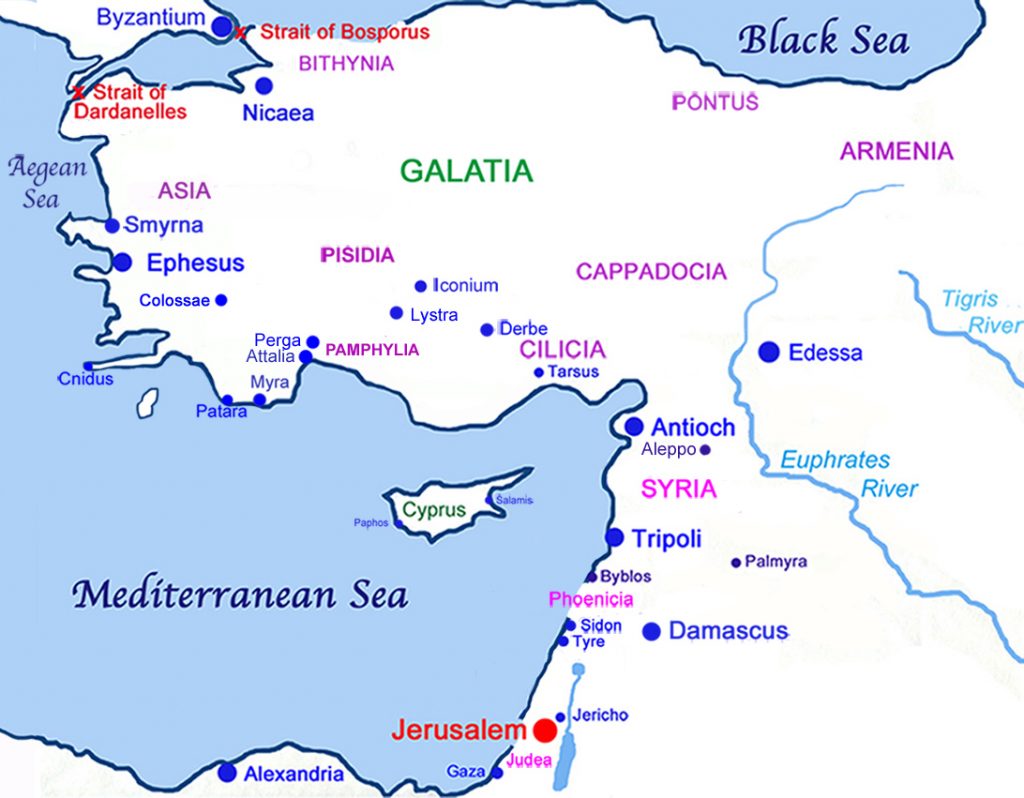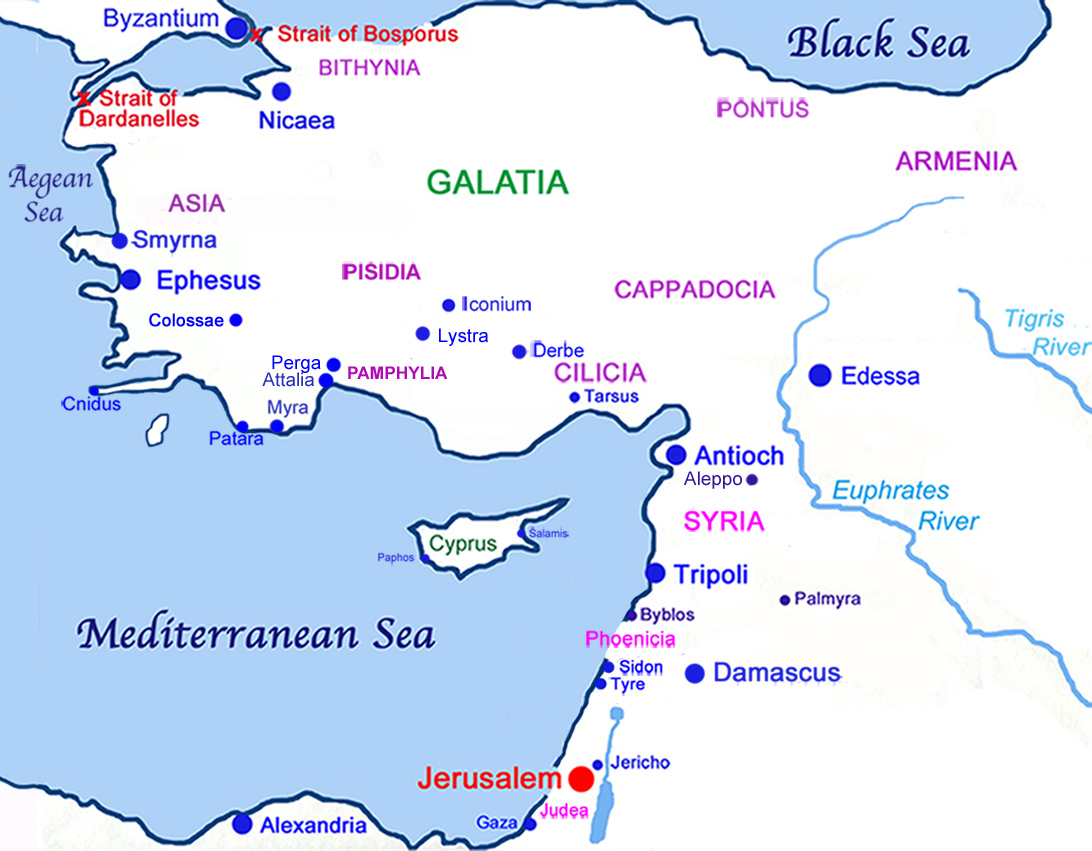
Antioch in the Bible is the name of two New Testament cities: Pisidian Antioch and Syrian Antioch.
Antioch of Syria, also known as Antioch on the Orontes River, was the third-largest city in the Roman Empire. Only Rome in Italy and Alexandria in Egypt were larger. Syrian Antioch (current-day Antakya, Turkey) was situated on the Orontes River about 20 miles inland from the Mediterranean Sea and approximately 300 miles north of Jerusalem. From its founding in 300 BC by Seleucus I Nicator, Syrian Antioch was a busy seaport trade hub possessing a lively mix of people from different cultures and religions with high intellectual and political status.
Antioch of Syria played a significant role in the book of Acts and the earliest developments in the spread of Christianity. The city was home to many Diaspora Jews—those deported through captivity who had chosen to remain living outside Israel but maintained their Jewish faith. These Hebrews engaged in business and enjoyed full rights of citizenship in the free city of Syrian Antioch. Through them, many Gentiles in Antioch were drawn to Judaism and, eventually, Christianity. One such Gentile convert was Nicolas from Antioch. He was among the seven Greek-speaking (Hellenist) leaders chosen to serve as deacons in Jerusalem (Acts 6:1–7).
The intense persecution that broke out in Jerusalem after the death of Stephen prompted some Jewish believers to flee to Syrian Antioch (Acts 11:19). When leaders in the Jerusalem church heard of the considerable number of Gentile conversions taking place in Antioch, they sent Barnabas there to minister to the growing congregation (Acts 11:22–25). Barnabas sought out the apostle Paul in Tarsus and brought him to Antioch, where together they taught the mixed assembly of Jewish and Gentile believers for a whole year. It was here at Antioch of Syria where believers were first called Christians (Acts 11:26).
In Syrian Antioch, the Christian prophet Agabus foretold of a great famine that would strike the Roman world. The enthusiastic Christians in Antioch responded to the prophecy with generous offerings to help the Jerusalem church when the famine hit. Barnabas and Paul carried these gifts to the elders in Jerusalem (Acts 11:27–30).
The city became the launching site of organized Christian foreign missions work when Barnabas and Saul were set aside by the leading of the Holy Spirit and then sent out from the church in Antioch of Syria (Acts 12:25—13:3). This first-ever missionary journey that took Paul and Barnabas into Asia Minor ended when they returned to Antioch of Syria and reported to the assembled church everything that God had done (Acts 14:24–28).
Another city called Antioch in the Bible was located between the districts of Phrygia and Pisidia in Asia Minor, west of Iconium, in the southern part of the province of Galatia. Pisidian Antioch was founded by Antiochus I and refounded by Augustus as a Roman colony. Augustus populated the city with thousands of his veterans and their families.
Pisidian Antioch became a key landmark on Paul’s first missionary journey with Barnabas. Paul was invited by the elders to preach in the synagogue of Pisidian Antioch, and the two missionaries were enthusiastically received by the townspeople there (Acts 13:14–44). But a group of Jewish leaders who were jealous of Paul’s popularity began to slander him (Acts 13:45). Thus, Paul and Barnabas turned their attention to the Gentiles, many of whom rejoiced and believed in the Lord (Acts 13:46–48). Their message of salvation spread throughout the region until Jewish persecutors finally ran Paul and Barnabas out of the city (Acts 13:50). As a result, Pisidian Antioch was a place where Paul and Barnabas “shook the dust from their feet as a sign of rejection,” just as Jesus had instructed (Acts 13:51; cf. Mark 6:11).
The same jealous, unbelieving Jews from Antioch of Pisidia followed Paul and Barnabas to Lystra and stirred up more trouble for them. Paul was stoned, dragged out of the city, and left for dead. Paul revived and later returned to Pisidian Antioch, despite the dangers there, to strengthen the church and appoint elders (Acts 14:19–23). Paul also used his experiences of suffering and persecution in Antioch of Pisidia to teach and encourage his young protégé Timothy (2 Timothy 3:11).
Although Bible scholars have long debated the matter, many believe that Paul’s epistle to the Galatians was written to the church in Pisidian Antioch and the nearby churches in Lystra and Iconium, all of which were in the Roman province of Galatia at the time of Paul’s active ministry. Whatever the case, both Pisidian Antioch and Syrian Antioch were noteworthy locations in Paul’s ministry as an apostle and in the early expansion of the Christian church.
source: https://www.gotquestions.org/Antioch-in-the-Bible.html
